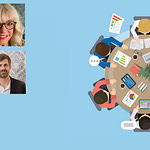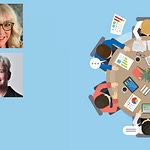Key Takeaways
Below is a quick summary of some of the key thoughts of our guests.
Alison Rubenstein – Legacy Advisor, Jewish Care
Alison discussed how their organisation has reacted to the pandemic and described the impact on Jewish Care as huge and immediate. Their priority was to save lives and so all visits to their homes were suspended and day centres were closed down. To counteract this, they bought iPads for all their homes so that residents could stay in touch with their loved ones. They also increased their existing ‘meals on wheels’ service to help deliver thousands of meals.
Their legacy marketing was stopped at the start of the pandemic as they didn’t feel it was comfortable or appropriate. Before Covid, they had engaged external consultants to work on a strategy and were due to receive the report at the end of March. In June they started thinking about legacy marketing again and their strategy focuses on stewardship and acquisition.
They had 70 people who were diagnosed with Covid-19 and made a recovery, the oldest member being 99 years old. There are currently no Covid infections in their homes and they have started accepting new admissions as well.
David Cole – Managing Director and Founder, Fastmap
David shared the findings from a research Fastmap had conducted into the public’s view of legacy fundraising during the pandemic. 15,000 people aged 50+ were part of this research and key insights included:
People were thinking about legacies and dying more than they usually would
42% of people thought it was strongly appropriate to ask for wills at this time
When PICs (pledgers, intenders, considerers) were asked, an overwhelming majority of people felt it was appropriate
Between 2018-19, there was a 4% increase (proportionate to 10%) in legacy consideration
David also discussed that generally, people will leave a gift to an organisation if that is their favourite charity. This is about engagement and having a profound experience. If a charity has the means by which individuals can physically engage with your brand, then that’s a real driver for increased propensity to leave a gift. Legacy is inherently linked to the brand so we need to be careful that we don’t tarnish that with the messaged we go out with.
You can download the slides containing the findings here.
Meg Abdy – Development Director, Legacy Foresight
Meg discussion was around ‘where next for charitable legacies’ and that there will be new gifts included in wills in the future.
Over the next two decades, deaths are set to climb rapidly and residual bequest values (which make up 75% of all income) will be curbed both by the post-pandemic recession and Brexit. A survey of 2000 people in late May/early July showed that 1 in 5 people are considering writing or re-writing their will. 4% of people have taken active steps and another 19% are seriously considering doing so.
Charities are already a significant player in the will-writing market due to the sheer volume of schemes on offer and they have the infrastructure in place to help. Currently 8% of wills are written online and it’s higher amongst younger generations. 1 in 5 millennials and gen-x have said they would use online services to write a will. One of the reasons for this is that as people get older, they have more complexity in their will-making which might cause them to revert to a more standard service that provides guidance and expertise.
Over the last 12 years, boomers have become more anxious and less optimistic about their future, but we are also seeing a rise in community spirit and volunteering. As older volunteers have been unable to help in recent months due to them having to isolate, it’s important to show them that they’ve not been forgotten. Stewardship is important in maintaining and potentially increasing pledges. It’s not just about 1-on-1 stewardship, as digital acquisition and stewardship are going to be crucial moving forward.










